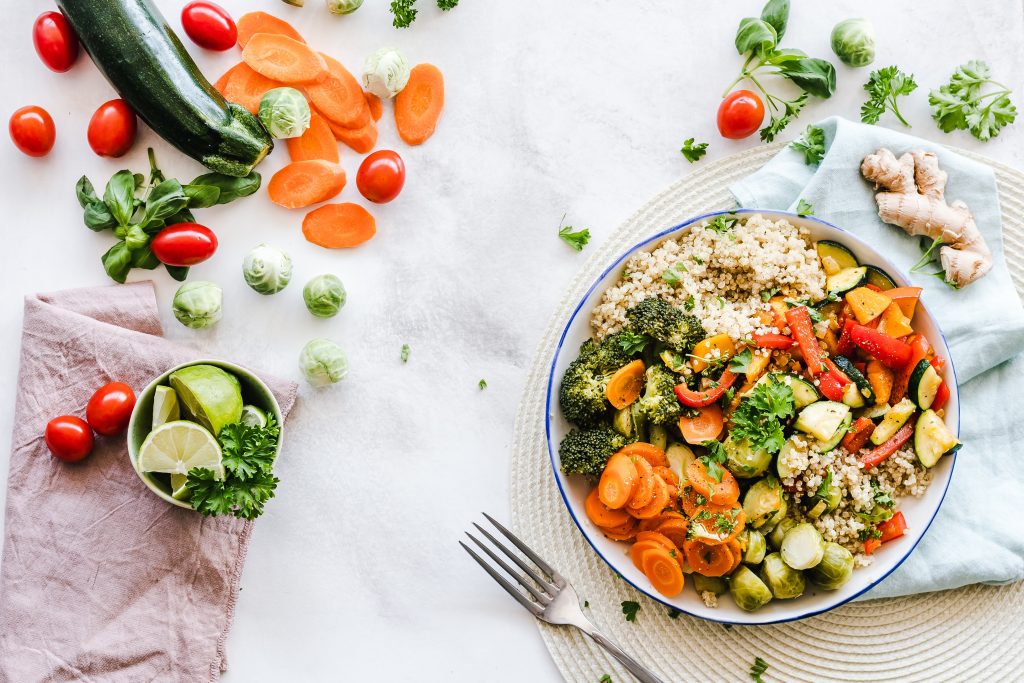 Items
Items


Recent studies and nutrition experts confirm that the most effective nutrition regimen for reducing inflammation is the plant-based diet (or “Whole Food Plant-Based Diet”).
Although adopting this pattern of eating requires a lot of commitment, awareness, and some discipline to build the habit, it is worth reviewing this type of eating and trying to adhere to it as much as possible.
– This diet is based on “real” foods, whole foods that come from Nature, plants and trees, high-vibration living foods with energy that comes from the sun, air, water, and not from industrial plants.
– You choose to eat food in the most natural way possible, that is, you prefer raw food, steamed food and in the least elaborate way possible (no foods of animal origin in this diet model).
– When preparing menus, it is better to divide the plate into three parts: half of the plate should contain fresh vegetables and fruits, preferably organic, ensuring that there is a large number of colors and pigments in our food, the indicator of a source of antioxidants (green spinach, kale, arugula, cucumber, celery; tomato or red pepper; red beet, radish, red cabbage or red onion; yellow pepper, etc.). A quarter or 25% should contain plant-based proteins such as quinoa, lentils, beans, chickpeas, or hummus, that is, a legume. Finally, the remaining 25% of the plate should contain whole grains such as brown rice, oatmeal, millet, or buckwheat.
– The use of salt should be limited.
– Herbs and spices, very rich in antioxidants, are welcome additions for flavor and nutrients.
– Fats are incorporated into the diet through the consumption of nuts, flax and chia seeds, avocados, and cold-pressed olive oil.

As can be seen, it is a vegetarian-type diet, rich in fiber, vitamins and antioxidants, with the addition of the greatest possible variety of foods, which favor the microbiota and intestinal health. An effective way to prevent and reduce inflammation.
Fully committing to this type of diet can be quite a challenge, but we can make small changes that can translate into significant achievements in a flexitarian way. A good way to start is to try to follow this type of diet 50% or 80% of the time. For example, we can try to follow this for breakfast and lunch or dinner, allowing more freedom for one of the meals, or we can try to eat like this from Monday to Friday and then be more relaxed on weekends. Even so, the benefits and improvement in well-being and health that will be observed will be enormous, and evident in the body.
If we prefer not to completely eliminate animal protein from our diet, we should be very selective in the type of meat, fish, eggs or dairy we consume, opting for the leanest option possible, with a GMO-free diet. In addition, animal protein should always be a small part of each meal. Some ingredients with anti-inflammatory power are:
– Turmeric
– Saffron
– Ginger
– Omega 3
– Olive oil
– Citrus
– Walnuts
– Green leafy vegetables
– Broccoli
– Garlic and onion
– Berries
Choose up to two answers

